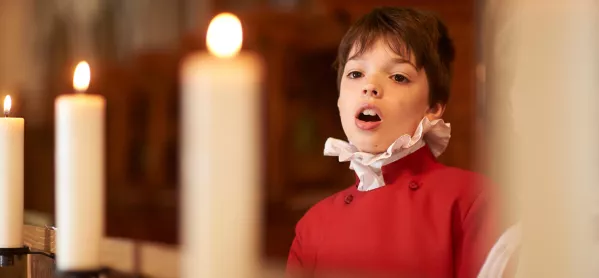- Home
- Why are we playing politics with children’s lives?
Why are we playing politics with children’s lives?

Nobody is thinking of the children.
In all the sound and fury that swirls around the future of independent schools, those who demand their abolition (and let’s not dignify it as a pseudo-consensual “integration”) refuse to discuss how our pupils will be affected if their schools are forced to close.
Their classrooms would go. If they are boarders, their homes will be closed down, their friendship groups dispersed. This bewildering assault on their familiar worlds will result in emotional wreckage that will have to be picked up by a state sector that is struggling to cope with its own pressures.
And, because it is inconceivable that the same terms and conditions offered by such a range of employers will be met by a government hostile to the existence of those it has now to accommodate, their teachers will be laid off.
Playing politics with children’s lives
If these children are vulnerable, then a whole network of expert support will be shattered. And all in the name of policy. As a former Labour leader once said to the earlier version of Momentum, you can’t play politics with people’s lives. What would he say about playing politics with the lives of children?
How wrong he was. How he underestimated the unfeeling persistence of extremists.
Why this wilful refusal to talk about the impact that abolition will have on pupils? How do we explain the reluctance by some to add human depth to the shallow black lines of conference policy?
Well, perhaps for many of those attending the Labour Party conference in Brighton this week, independent-school pupils exist only on a spectrum of caricatures ranging from Jacob Rees-Mogg on one three-pieced extreme to Boris Johnson on the prorogued other (with perhaps David Cameron in the middle to add some variety). That’s as close to the truth as Please Sir! is to being a gritty, realistic portrayal of inner-city teaching in the 21st century.
Henry VIII-style land grab
Caricatures serve zealots well: they’re easy to mock, easy to put on a placard or make into a GIF, easy to burn when the effigies are lit and the bonfire of self-indulgent vanity policies begins to curl around the feet of the innocent. We are entering a new round of dissolution, and as the Labour Party goes through the painful, contested divorce from both morality and sanity, the biggest land grab since the monasteries were seized by Henry VIII is being lined up.
Public-school chapels, so often lit up from within by song and celebration, stand to wait for the new endarkenment of statist control and closure. The metaphorical lead will be ripped from their roofs, their possessions ”redistributed democratically and fairly” to various baffled comprehensive headteachers, who will wonder what to do with all those chorister gowns.
Much of this is borne out of a careful curation of ignorance. Ask how many of the activists who march behind the flag that is #AbolishEton have worked in an independent school, or even visited one recently, and you’ll find the number is microscopic.
Such an unwillingness to listen to different views perpetuates biases, especially when that pickled dogma has to be forced into clenching mouths. The abolitionists who seek to seize property have little understanding of the work our schools do, the jobs we provide in our local communities, the partnerships we are engaged in across sectors. Or, if they do, it is rarely confessed to.
Because with experience comes understanding, and with understanding comes cooperation and empathy. It is at the root of all valuable teaching. And the greatest accelerator of that process is human interaction.
Challenging prejudice
So perhaps those who want to destroy the sector - many of whom are teachers - do not want to listen to or understand the students who attend our schools because it might begin an uncomfortable process of self-reflection. It’s easier to trade in diamond-hard prejudices unsoftened by reality.
Yes, these children are very often relatively privileged. But most of them know this, and many want to help make our society a fairer, not a more unequal place.
But many of those I talk to in a number of schools feel that they are being judged before they open their mouths or state their views. Such double standards serve nobody, least of all those who rightly want to challenge all forms of prejudice.
There are those who are quick to defend state schools such as Michaela, when they are attacked by critics who do not share their values. But we are witnessing from the left a wave of school-shaming that is tidal in proportion and relentless in its frequency and hostility.
We should remember that behind every school gate there are children grappling with the complexity of growing up, and teachers doing their utmost to support them.
In standing up for our sector, independent-school staff are doing what they should be applauded for, not pilloried and attacked on social media. Yes, we are preserving our livelihoods, but we are also trying to protect our students from gross misrepresentations that are perpetuated by a self-serving sect that confuses ideology for social change.
The volume in this debate needs to be turned down. We need to remind ourselves that young people are at the centre of this storm, and that those different, younger voices now need to be listened to, because this is their future, not ours, and we should stop playing politics with it.
David James is deputy head (academic) of Bryanston School, an independent school in Dorset
Keep reading for just £1 per month
You've reached your limit of free articles this month. Subscribe for £1 per month for three months and get:
- Unlimited access to all Tes magazine content
- Exclusive subscriber-only stories
- Award-winning email newsletters



